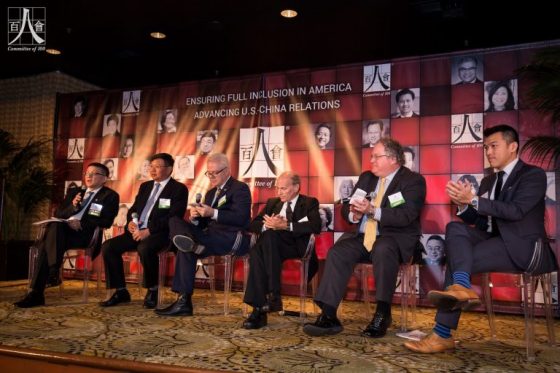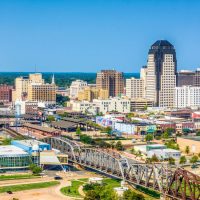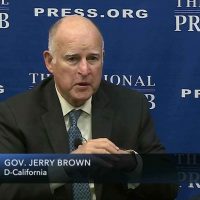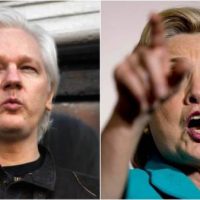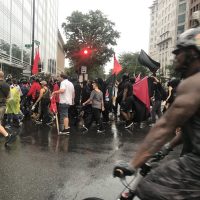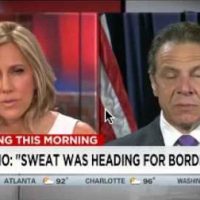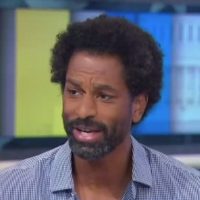Though little known beyond elite circles, the Committee of 100 is one of the Chinese Communist Party’s most important “influence” organizations in the United States.
Much like the recently defunded Confucius Institutes — the U.S. National Defense Authorization Act stipulates that no Pentagon money may be used for a program that includes the Confucius Institutes — the C-100 publicly promotes increased Chinese-American relations and understanding while, in reality, toeing the Chinese Communist Party line to America’s cultural, business, and political leaders.
During Xi Jinping’s first U.S. visit as Chinese head of state in September 2015, Xi praised the C-100 before guests at a welcome dinner co-hosted by the National Committee on U.S.–China Relations, the U.S.–China Business Council, and the Washington State Welcoming Committee–Seattle 2015.
“As a Chinese saying goes, the fire burns high when everyone brings wood to it. It is the loving care and hard work of … friendly organizations and people from all walks of life in both countries that have made China–U.S. relations flourish,” Xi said.
“In particular … the Committee of 100 … and many other friendly groups and individuals have made untiring efforts over the years to promote friendly relations and cooperation between the two countries and brought the relationship this far.”
C-100 is also viewed favorably by leading Chinese Communist Party officials.
On May 7, 2010, “a good friend of the Committee of 100,” C.H. Tung, vice chairman of the Chinese People’s Consultative Conference — a “united front organization under the leadership of the Communist Party of China” — met with New York C-100 members to discuss U.S.–China relations. During his visit to the United States, Tung spoke to the Carnegie Endowment for International Peace about the importance of mutual understanding and trust. Tung’s China–U.S. Exchange Foundation was then formed with C-100 help to “support activities furthering such understanding.”
On May 13, 2010, C-100 members Clarence Kwan, Lulu C. Wang, and Alice Young met with professors Hongwei Li and Qin Lu, both from the CCP’s Central Party School, to discuss “China’s new media as well as environmental issues.”
The C-100 holds regular conferences in the United States and “Greater China,” including occasionally Taiwan. The organization regularly sends delegations of American journalists to China and facilitates meetings with high-level government and business leaders. C-100 has also sent black and Latino delegations to China, mostly comprising leftist “community leaders.”
Former U.S. Secretary of State Henry Kissinger, who opened U.S. relations with Mao’s China under President Richard Nixon, helped conceive the idea of the C-100 and encouraged co-founders I.M. Pei and Henry Tang to establish the organization in 1989.
According to the website of the C-100 newsletter:
“The Committee of 100 was conceived in 1989 by famed architect I.M. Pei to fill the need for an organization of influential Chinese Americans who could speak with a unified voice to decision-makers at the highest levels in both the U.S. and China.
“By the end of 1990, C-100 Founders Pei, Yo-Yo Ma, Shirley Young, Oscar Tang, Henry Tang, and Chien-Shiung Wu had recruited nearly 100 American citizens of Chinese descent who had reached the pinnacle of their fields, spanning the arts, business, academia, public service, science and technology.
“Uniting them was the desire to expand the participation of Chinese Americans in all aspects of American life and to foster better U.S.–China relations.”
Today, the C-100 roster has expanded to more than 190 members — all top performers in their fields, and all seemingly friendly to the existing regime in China.
Current C-100 members who have served the U.S. government at high levels include, former general counsel for the Department of Homeland Security Ivan Fong, former U.S. Assistant Secretary of Energy Robert Gee, former Commissioner of the Federal Maritime Commission Ming Chen Hsu, White House National Economic Council Senior Counselor Ginger Lew, former U.S. Secretary of Commerce and U.S. Ambassador to China Gary Locke, former U.S. Deputy Under Secretary of Commerce and current Maryland Deputy Secretary of Commerce Benjamin Wu, and former U.S. Attorney for the Central District of California Debra Wong Yang.
C-100’s advisory board includes Norman Mineta, secretary of transportation under President George W. Bush; Irene Hirano-Inouye, president of the U.S.–Japan Council; Dr. William J. Perry, former secretary of defense under President Bill Clinton; and John L. Thornton, chair of the board of trustees at the Brookings Institution.
Read the full story from NoisyRoom.net
Want more BFT? Leave us a voicemail on our page or follow us on Twitter @BFT_Podcast and Facebook @BluntForceTruthPodcast. We want to hear from you! There’s no better place to get the #BluntForceTruth.

